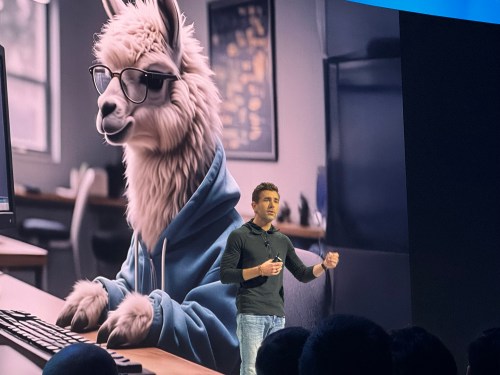Meta Unveils Ambitious AI Strategy to Challenge OpenAI Leadership

Meta, the tech giant renowned for its innovation, hosted its inaugural AI developer conference, LlamaCon, at its headquarters in Menlo Park, California. At this event, the company revealed the launch of a consumer-friendly Meta AI chatbot app, a strategic move aimed at directly rivaling OpenAI’s ChatGPT, alongside a developer-centric API designed to streamline interactions with its Llama models in cloud environments.
These developments signal Meta’s commitment to enhancing the accessibility of its open Llama AI models, but hints of a deeper motivation exist—the ambition to outpace OpenAI. Meta’s overarching strategy involves cultivating a flourishing ecosystem for open AI technologies that contrasts sharply with the more restrictive, “closed” approaches of competitors like OpenAI, which typically restrict access to their models.
The introduction of the Meta AI chatbot app seems to preempt OpenAI’s anticipated foray into the social media landscape, featuring a unique social feed allowing users to share their AI interactions and personalized feedback tuned to individual user activity across Meta’s platform.
Additionally, the Llama API presents a formidable challenge to OpenAI’s API offerings, designed to empower developers with a simplified coding interface for cloud-based applications that utilize Llama models without depending on third-party providers. This flexibility provides Meta a distinct edge in equipping developers with robust AI tools while emphasizing their open model philosophy.
Internally, Meta executives view OpenAI as a primary competitor, with legal documents from previous court cases revealing their acute focus on surpassing OpenAI’s flagship GPT-4 model. This obsession with dethroning OpenAI is a crucial part of Meta’s long-term strategy, as highlighted by CEO Mark Zuckerberg’s previous statements distinguishing Meta’s approach from OpenAI’s business model, which revolves around monetizing access to its AI technologies.
Pre-LlamaCon discussions among AI specialists suggested that attendees were hopeful for the launch of a reasoning model competitive with OpenAI’s offerings, such as the o3-mini. However, Meta’s vision seems less about winning a single race and more about collaborating within a broader community of open-source AI developers. During LlamaCon, Zuckerberg referred to other AI labs that prioritize open accessibility—including DeepSeek and Alibaba’s Qwen—as valuable partners in the push against proprietary models.
As part of this dialogue, Zuckerberg articulated a vision where open-source models allow developers to integrate various strengths from differing AI systems, enhancing the quality and applicability of their outputs. This hybrid concept advocates for a landscape where the best features can be amalgamated, ultimately producing superior applications.
Beyond merely stifling the growth of OpenAI, Meta’s efforts may also align with compliance strategies concerning emerging regulations like the EU AI Act, which offers incentives for organizations distributing free and open-source AI tools. Despite debates on whether Llama models qualify as truly open-source, Meta appears poised to cement its position within the AI sector, emphasizing the importance of open models while simultaneously navigating the regulatory landscape.
Conclusively, as Meta embarks on this journey, the company seems determined not only to fortify the open AI ecosystem but to position itself as a vanguard against close-source entities like OpenAI, irrespective of the potentially disruptive challenges inherent in evolving AI technologies.
